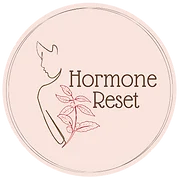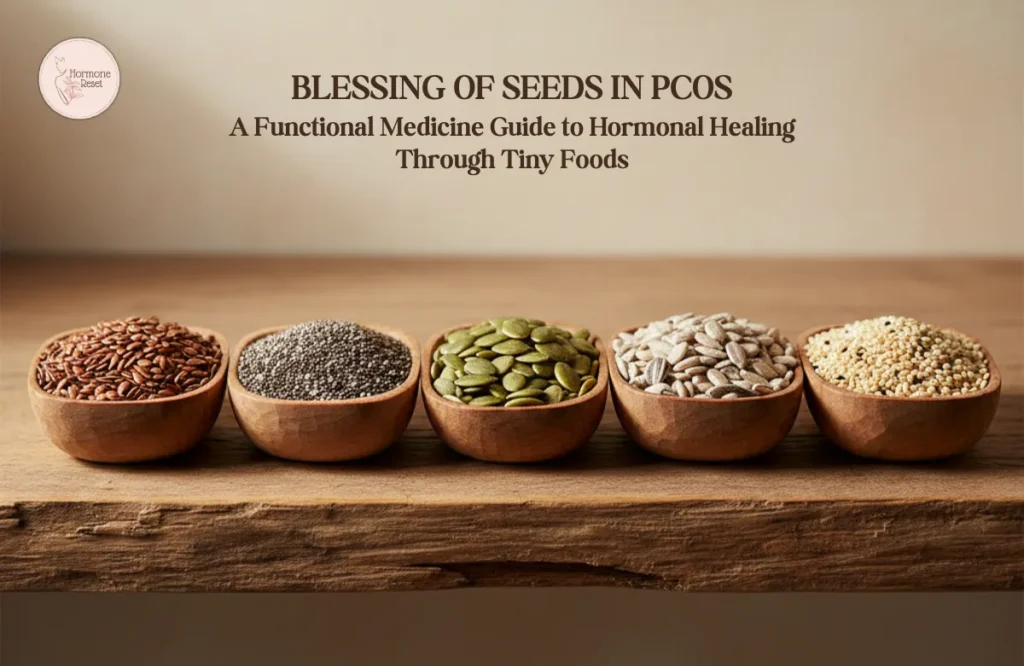Introduction
Hormones are the body’s chemical messengers, crucial in regulating numerous physiological processes, including metabolism, immune function, mood, and reproductive health. A delicate balance of hormones is essential for overall health, and when this balance is disrupted, various symptoms can manifest, ranging from fatigue to weight gain. The role of diet in maintaining this hormonal equilibrium cannot be overstated; what we eat significantly influences hormone production, regulation, and metabolism.
Importance of Diet in Maintaining Hormonal Balance
Nutrition is a powerful tool in promoting hormonal health. A balanced diet rich in whole foods can support hormonal functions and mitigate the effects of imbalances. Conversely, a diet high in processed foods, sugar, and unhealthy fats can exacerbate hormonal disturbances. Understanding the connection between diet and hormonal health is crucial for optimizing their well-being.
Understanding Hormonal Imbalance
Definition of Hormonal Imbalance
Hormonal imbalance occurs when there is too much or too little hormone in the bloodstream. This can affect various bodily functions, leading to health issues that may be chronic or temporary. Common hormonal imbalances include those related to insulin, cortisol, estrogen, thyroid, and testosterone.
Common Symptoms
Hormonal imbalances can manifest in various symptoms, including:
- Fatigue: Often linked to adrenal or thyroid hormone disruptions.
- Mood Swings: Imbalances in estrogen and progesterone can affect mood stability.
- Weight Gain: Insulin resistance, often related to diet, can lead to weight gain, particularly around the abdomen.
- Menstrual Irregularities: Fluctuations in hormone levels can disrupt menstrual cycles.
- Sleep Disturbances: Hormones play a crucial role in sleep regulation.
Factors Contributing to Hormonal Imbalance
Several factors can contribute to hormonal imbalances:
- Stress: Chronic stress leads to elevated cortisol levels, which can disrupt other hormones.
- Lifestyle: Poor sleep, lack of exercise, and sedentary behavior can negatively affect hormonal balance.
- Diet: The types of foods consumed have a direct impact on hormone levels and overall health.
- Nutritional deficiencies – vitamin D, omega-3 fatty acids, magnesium, iodine, etc.
- Aging
- Toxins – pesticides, heavy metals
- Endocrine-disrupting chemicals (EDCs)
The Role of Diet in Hormonal Health
Explanation of How Diet Affects Hormone Production and Regulation
Diet plays a pivotal role in hormone production and regulation. Nutrient-dense foods provide the building blocks necessary for hormone synthesis. For instance, fats are essential for producing steroid hormones, while proteins are crucial for the synthesis of peptide hormones. Inadequate nutrition can lead to deficiencies that may trigger hormonal imbalances.
Key Nutrients That Influence Hormones
- Omega-3 Fatty Acids: These healthy fats, found in fatty fish and flaxseeds, have been shown to reduce inflammation and support hormonal health. A study published in Nutrition Reviews found that omega-3s can help balance hormones like insulin and cortisol.
- Vitamins and Minerals: Essential nutrients such as vitamin D, B vitamins, magnesium, and zinc play critical roles in hormone regulation. For example, a deficiency in vitamin D has been linked to lower testosterone levels in men.
Impact of Processed Foods and Sugar on Hormonal Balance
Processed foods and high sugar intake can wreak havoc on hormonal balance. These foods often contain additives, unhealthy fats, and excessive sugars, leading to insulin resistance, increased inflammation, and disrupted hormone signaling. Research indicates that high sugar consumption is associated with obesity and type 2 diabetes, both of which are linked to an imbalance of insulin and other hormones.
Foods to Avoid for Hormonal Balance
Processed Foods and Their Effects on Hormones
Processed foods often contain preservatives, unhealthy fats, and artificial additives that can disrupt hormonal balance. These foods can lead to inflammation, insulin resistance, and hormonal dysregulation.
Sugar and Its Role in Insulin Resistance
Excessive sugar intake is a major contributor to insulin resistance, which can lead to conditions like polycystic ovary syndrome (PCOS) and type 2 diabetes. According to the American Heart Association, the average American consumes about 77 grams of sugar per day, significantly exceeding the recommended limit of 25 grams for women and 37.5 grams for men (Mozaffarian et al., 2011).
Impact of Unhealthy Fats and Additives
Trans fats and excessive omega-6 fatty acids, often found in fried foods and baked goods, can promote inflammation and disrupt hormonal signalling. Avoiding these fats is essential for maintaining hormonal health.
Effects of Pesticides and Toxins in Food
The presence of pesticides and other toxins in the food supply is a significant concern for hormonal health. Many of these chemicals, including pesticides, herbicides, and heavy metals, are classified as endocrine-disrupting chemicals (EDCs). EDCs interfere with hormone production, metabolism, and signaling, leading to disruptions in the endocrine system. Studies have shown that long-term exposure to these toxins, even in small amounts, can lead to hormonal imbalances, contributing to conditions such as infertility, thyroid disorders, and metabolic issues like obesity and diabetes. Choosing organic and pesticide-free produce, when possible, is essential for minimizing exposure to these harmful substances and supporting overall hormonal balance.
Impact of Hormones in Animal Products
Hormones used in animal agriculture can also affect human hormonal health. Many commercially raised animals are injected with growth hormones or fed hormone-laden feed to increase their size and milk production. When humans consume these animal products, it can disrupt their natural hormonal balance. Research suggests that regular intake of hormone-treated meat and dairy products can increase estrogen levels in the body, potentially contributing to hormone-related conditions like estrogen dominance, which is linked to conditions such as polycystic ovary syndrome (PCOS) and breast cancer. To support hormonal balance, it’s recommended to choose hormone-free or organic animal products.
Foods That Support Hormonal Balance
Whole Foods to Include
Incorporating whole foods into your diet can promote hormonal health. Consider the following:
- Fruits and Vegetables: Rich in vitamins, minerals, and antioxidants, they help combat oxidative stress and inflammation.
- Healthy Fats: Sources like avocados, nuts, seeds, and olive oil support hormone production.
- Lean Proteins: Foods such as chicken, fish, legumes, and eggs provide amino acids vital for hormone synthesis.
Herbs and Supplements That Promote Hormonal Health
Certain herbs and supplements can also support hormonal balance:
- Maca Root: Traditionally used to enhance energy and sexual health, maca root may help balance estrogen levels
- Ashwagandha: Known for its adaptogenic properties, ashwagandha can help reduce cortisol levels and combat stress
Importance of Balanced Meals and Blood Sugar Management
Maintaining balanced meals that include protein, healthy fats, and complex carbohydrates can help stabilize blood sugar levels, which is crucial for hormonal health. Fluctuating blood sugar can lead to increased insulin levels, contributing to hormonal imbalances. Additionally, balanced meals support optimal thyroid function, as the thyroid hormone plays a vital role in regulating metabolism. Consistent blood sugar levels help prevent excessive stress on the thyroid, which can become overworked when blood sugar spikes and crashes occur. Proper nutrient intake, particularly iodine, selenium, and zinc, also supports healthy thyroid hormone production and overall metabolic balance.
Lifestyle Factors That Affect Hormones
Stress Management Techniques
Stress management is vital for hormonal balance. Techniques such as:
- Exercise: Regular physical activity can help reduce cortisol levels and improve insulin sensitivity.
- Meditation: Mindfulness and meditation practices have been shown to reduce stress and promote hormonal balance.
- Quality Sleep: Ensuring adequate sleep is critical, as hormonal regulation occurs predominantly during sleep.
Importance of Hydration
Proper hydration supports metabolic functions and hormone regulation. Dehydration can lead to elevated cortisol levels and affect overall health. Aim to drink plenty of water throughout the day.
The Role of Physical Activity
Regular physical activity can improve hormonal balance by enhancing insulin sensitivity, reducing stress levels, and promoting a healthy body weight. According to the CDC, adults should aim for at least 150 minutes of moderate-intensity aerobic activity each week (CDC, 2020).
Conclusion
Understanding the connection between diet and hormonal health is crucial for achieving overall well-being. By focusing on a nutrient-rich diet, avoiding processed foods and excessive sugars, and adopting healthy lifestyle habits, individuals can take proactive steps to maintain hormonal balance.

References
- Buchowski, M. S., et al. (2015). “Dietary omega-3 fatty acids and their role in hormonal health.” Nutrition Reviews.
- Pilz, S., et al. (2011). “Vitamin D and testosterone in men.” Clinical Endocrinology.
- Vartanian, L. R., et al. (2007). “Sugar-sweetened beverage consumption and weight gain.” American Journal of Clinical Nutrition.
- Stojanovska, L., et al. (2016). “The effect of maca root on hormonal balance.” Journal of Ethnopharmacology.
- Chandrasekhar, K., et al. (2012). “A standardized extract of ashwagandha reduces stress and anxiety in adults.” Journal of Clinical Psychology.
- Mozaffarian, D., et al. (2011). “Changes in diet and lifestyle and long-term weight gain in women and men.” New England Journal of Medicine.
- CDC. (2020). “Physical Activity Basics.” Centers for Disease Control and Prevention.
Share





Leave a Reply